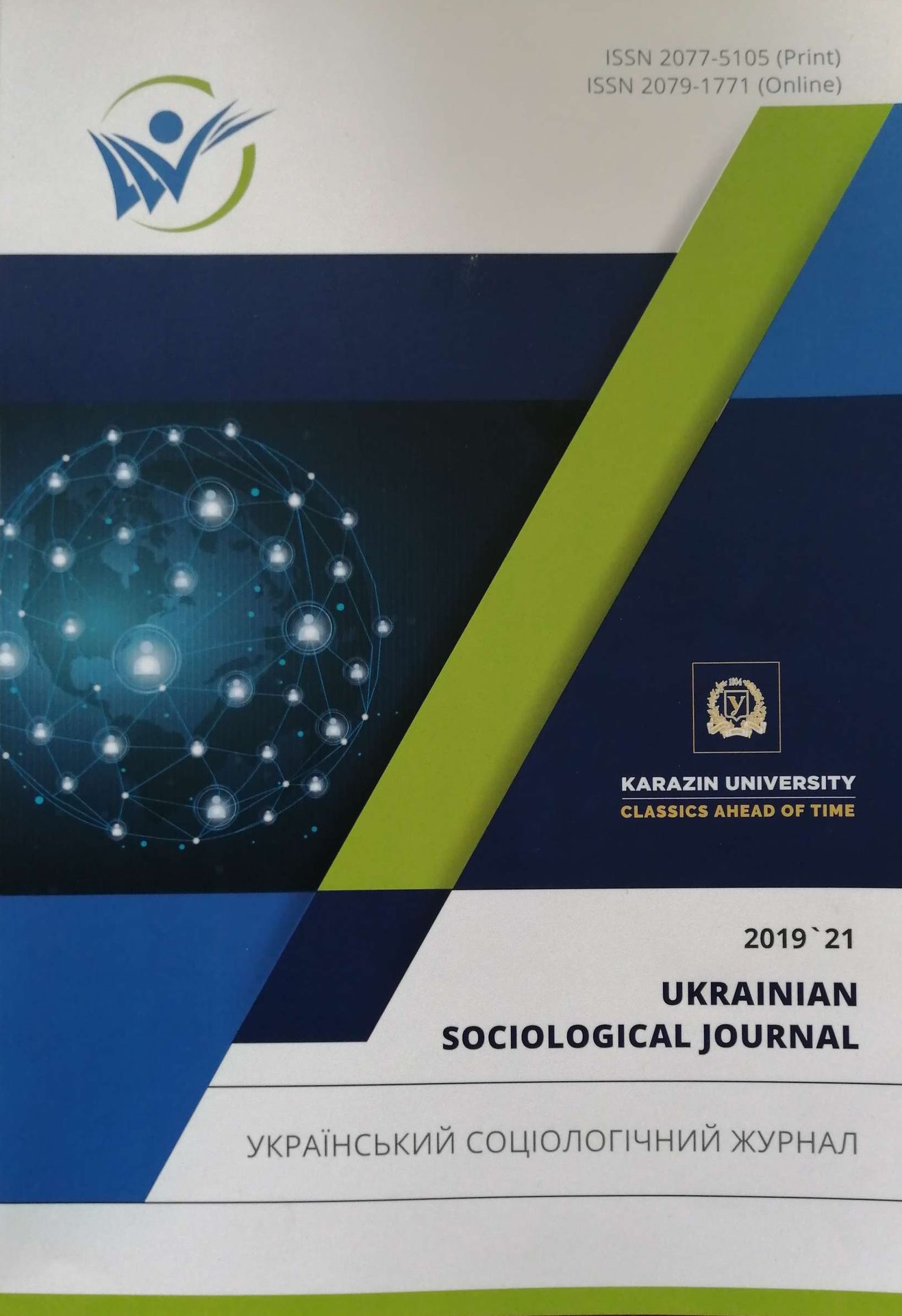Hitchhiking as an Alternative System of Spatial Mobility
Abstract
The article is devoted to the analysis of dominant and alternative mobility systems in contemporary world. It is emphasized that mobility can be both real and potential actions in their connection with social relations in space and time. Mobility cannot exist without human need or desire to be at a certain time in a certain place. These factors lead to various types of mobility systems. It is noted that the mobility system is a complex of social relations and material infrastructure that make a certain type of spatial movement possible, repetitive and predictable. Any action or movement is possible only as part of a specific mobility system. In the modern world, there are dominant institutionally fastened mobility systems. One of the most common of these is the tourism system. The article analyzes some theoretical approaches to the study of tourism presented in the works of such scientists as Z. Bauman, J. Urry, T. Veblen and others. The attention is focused on the fact that the tourism system is highly influenced by market relations. Tourism has become a product of conspicuous consumption and one of the factors of social inequality reproduction at the same time. It is emphasized that there are alternative spatial mobility systems that are excluded from market logic. One of the most common alternative spatial mobility systems is hitchhiking, that is, the practice of free travel on passing nonscheduled vehicles with the consent of the driver. The features of the functioning of spatial mobility systems in the modern world are investigated. The properties of the dominant and alternative mobility systems are considered, as well as the differences between them are also analyzed. It has been revealed that alternative spatial mobility systems are built upon personalized trust relationships. Conclusion is made that hitchhiking performs the function of social integration.
Downloads
References
Урри Дж. Мобильности. Москва, 2012. 576 с.
Добреньков В.И., Кравченко А. И. Фундаментальная социология. В 15 т. Т. 11: Культура и религия. Москва, 2007. 1104 с.
Соловьева А. М. Железнодорожный транспорт России во второй половине ХІХ в. Москва, 1975. 315 с.
Петрова Е. В. Туризм как объект социологического анализа. Вестник МГОУ. Серия «Философские науки». 2008. № 12. Вып 3. С. 104 109.
Урри Дж. Взгляд туриста и глобализация. Массовая культура: современные западные исследования. Москва, 2005. С.136 150.
Mowforth M., Munt I. Tourism and Sustainability: New Tourism in the Third World. Abingdon: Routledge, 1997. 384 p.
Делёз Ж., Гваттари Ф. Анти-Эдип: Капитализм и шизофрения. Екатеринбург, 2007. 672 с.
Бауман 3. Глобализация. Последствия для человека и общества. Москва, 2004. 188 с.
Веблен Т. Теория праздного класса. Москва, 2011. 365 c.
Покровский Н. Е., Черняева Т. И. Туризм: от социальной теории к практике управления. Москва, 2008. 424 с.
Ионин Л. Г. Социология культуры. Москва, 2004. 427 с.
Мосс М. Общества. Обмен. Личность. Труд по социальной антропологи. Москва, 2011. 416 с.
Салинз М. Экономика каменного века. Москва, 1999. 296 с.




